Mikhail Kalatozov | 1hr 37min

For the first half hour of Letter Never Sent, the most pressing dramas that arises on our four adventurers’ journey into the wilderness are their romantic tensions and jealousies. Tanya’s affection for Andrei particularly irritates the insecure Sergei, resulting in a physical altercation that leaves Andrei picking himself up out of a swamp, and further complicating their already challenging quest for diamonds in the secluded mountains and forests of central Siberia.
Perhaps the only level-headed member of this party is their guide, Konstantin. Unlike the others, he is not a geologist, yet he has traversed this region many times before. It is clear from the letter he is writing to his wife that their juvenile antics are of little interest to him, and instead his heart and mind linger elsewhere.
“Remembered sitting in the hallway with you. I saw love and anxiety in your eyes. But again and again some overpowering voice keeps carrying me off. I’m even glad not to have sent this letter. Now during every stop near every campfire I’ll write to you about our itinerant life in the taiga.”
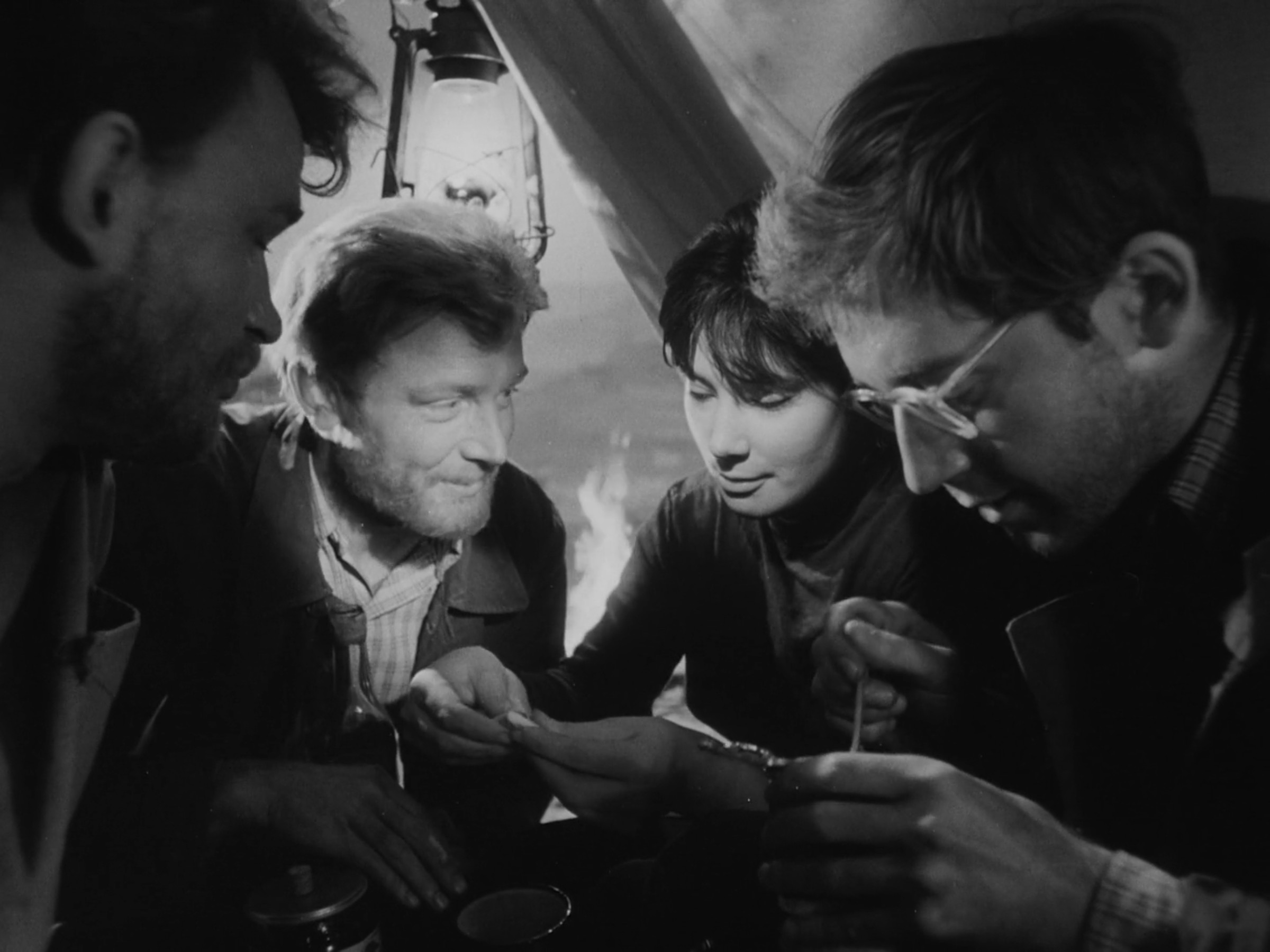
Konstantin knows better than anyone how unpredictable the natural world can be, though even he isn’t prepared for the overwhelming turn of events which shrinks these emotions into minor trivialities. This rugged environment does not exist to profit humans, but is indifferent to their aspirations and suffering, tenderising vulnerable minds with its unfathomable, primordial chaos before swallowing them whole.
Where Mikhail Kalatozov once dedicated his handheld camerawork and canted angles to the soul-destroying grief of war in The Cranes Are Flying, here his aesthetic revels in a maddening struggle for survival, bowing down before ravaging elemental forces. We can feel every breath and shiver through his ultra wide-angle lens, pressing intimately against actors’ faces while stretching out daunting landscapes behind their weary expressions. His shift in location away from the urban centres of Russia only further demonstrates the versatility of his high-contrast photography as well, studying the evocative textures of rippling water, fresh fallen snow, and charred forests with equal parts wonder and terror.
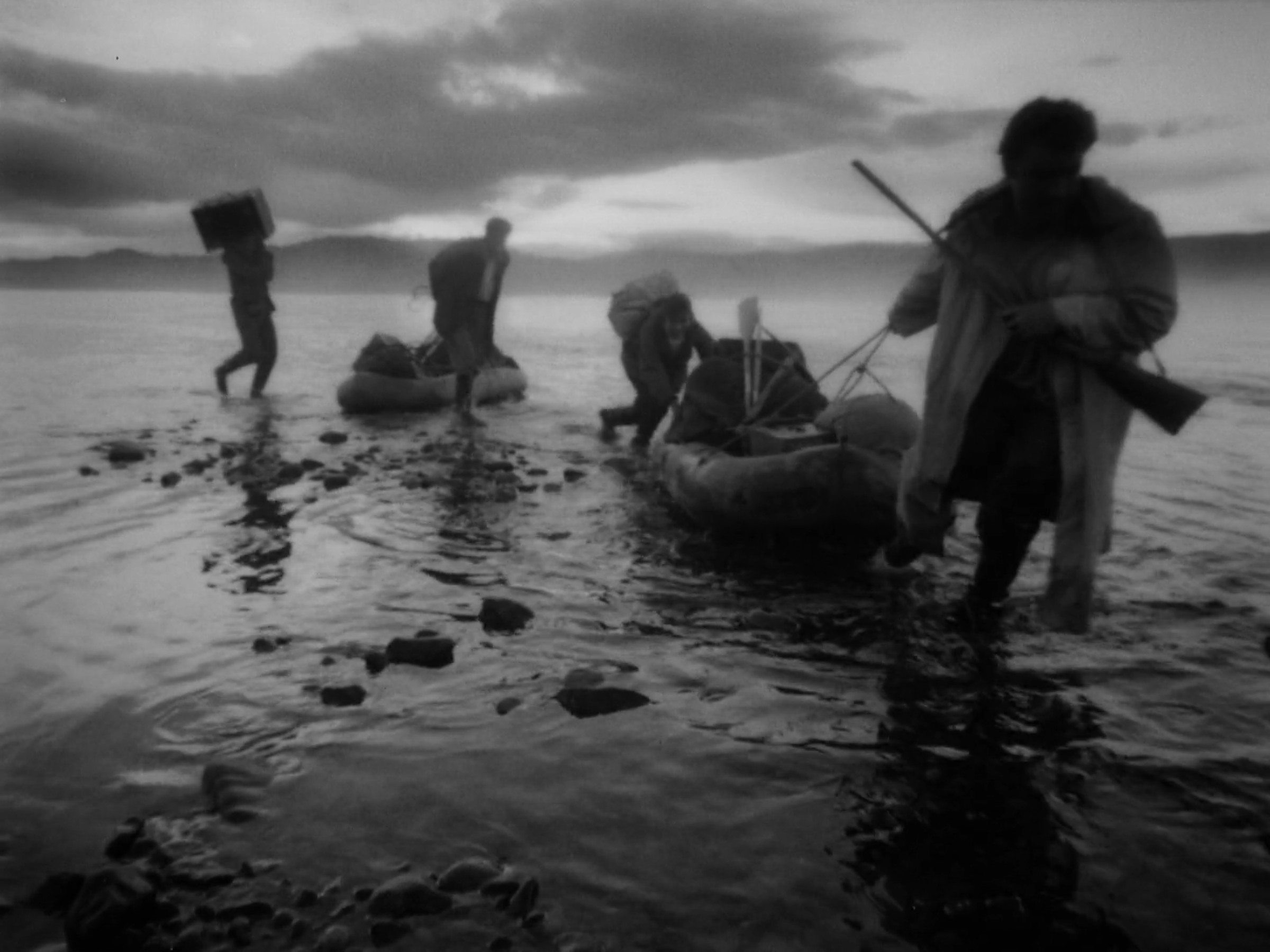
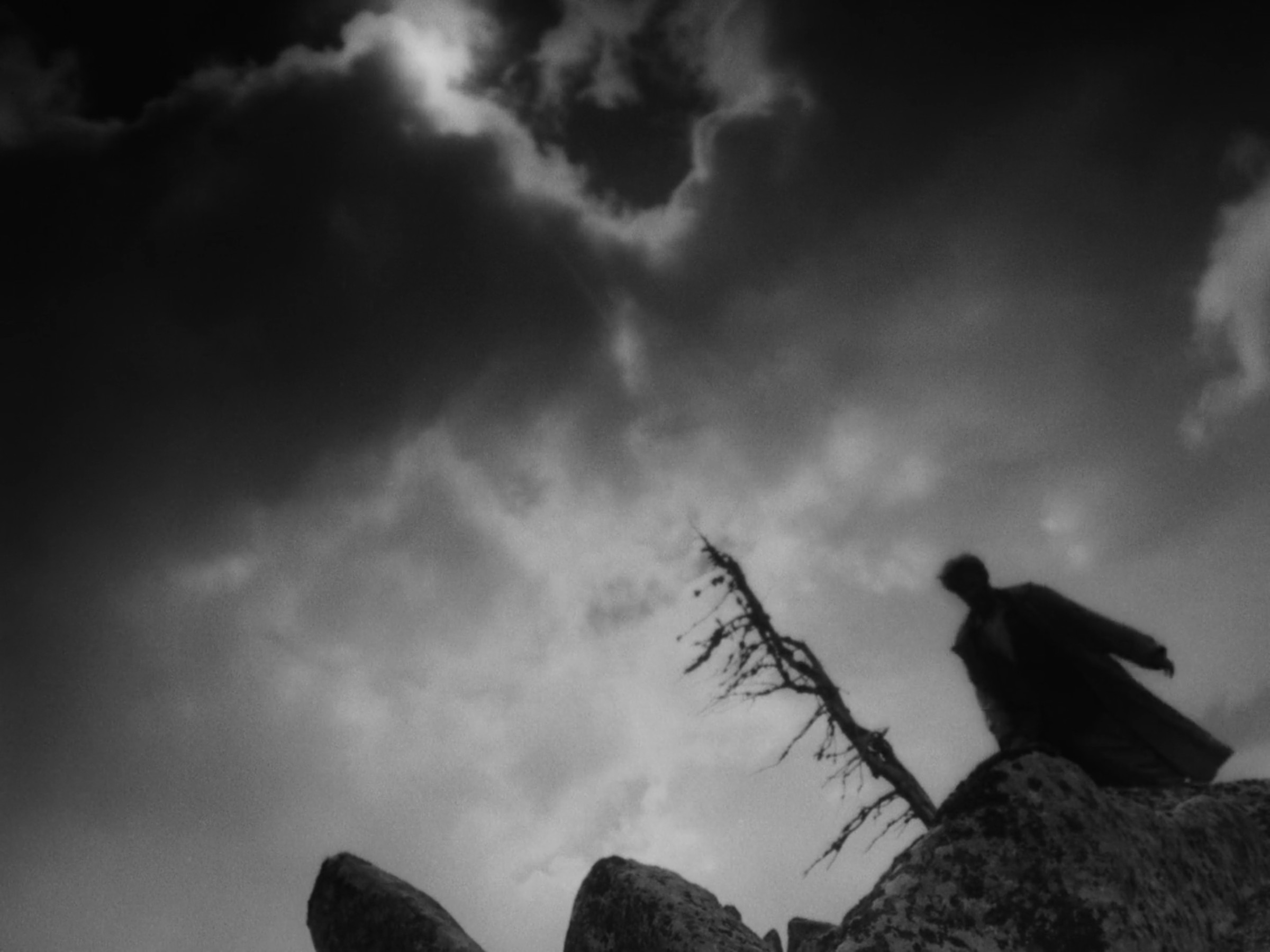
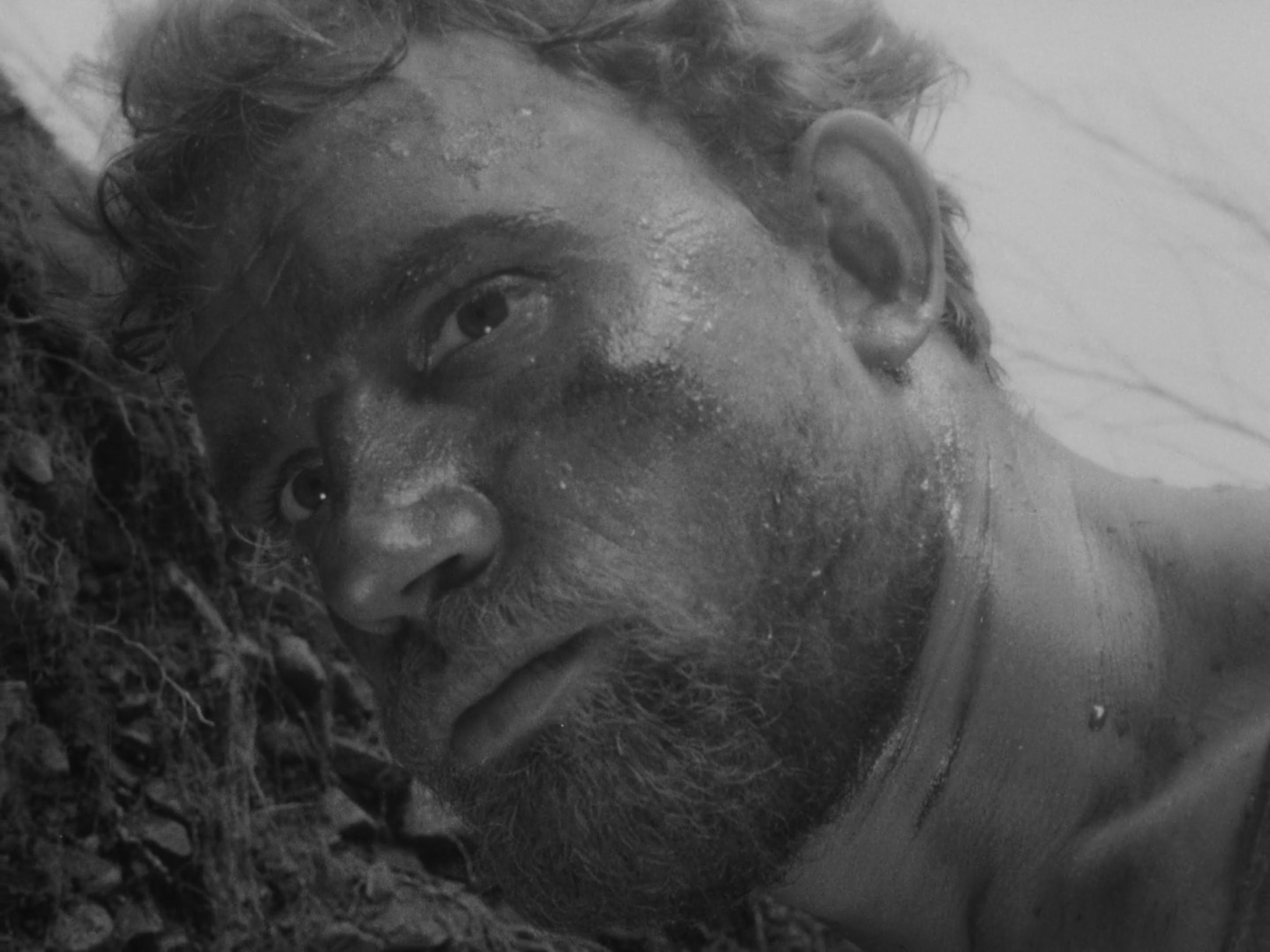
Even before these explorers begin dropping though, Kalatozov is already wearing away at their sanity, sinking his majestic orchestral score into a crashing, dissonant cacophony of strings, woodwinds, and percussion. “We are straining ourselves to wrench out the mystery from the bowels of the earth,” Konstantin continues to write in his letter, his voiceover playing beneath a frenetic montage of the party trekking across mountains and fruitlessly hacking at the earth, while the faint, double-exposed imprint of a fire rages over the top. The foreshadowing should not go unnoted here. As if sparked by this raging delirium, the forest itself catches alight shortly after, tragically dooming Sergei to perish beneath a fallen tree.
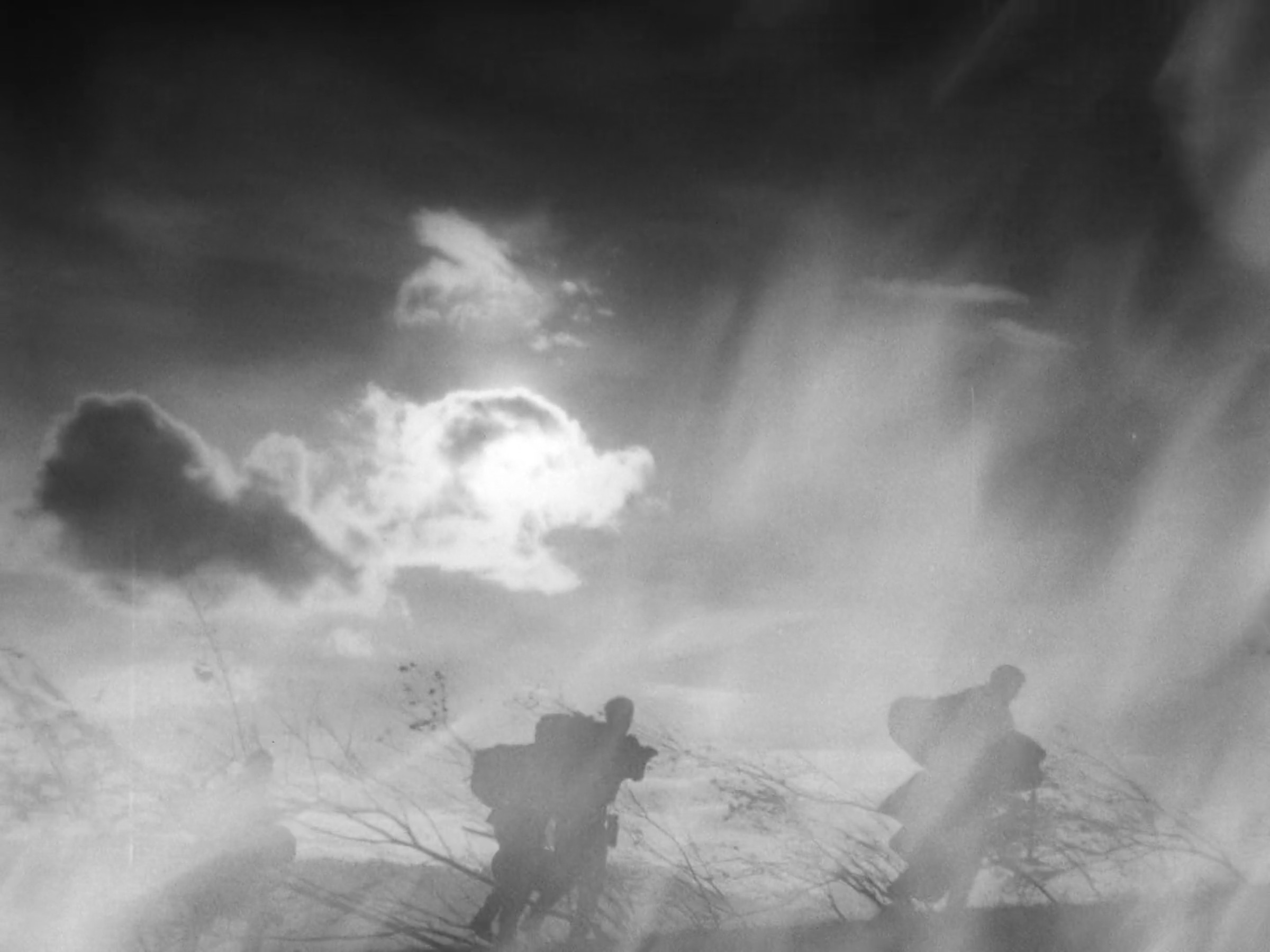
“Nature has turned herself against us,” Konstantin’s voiceover poignantly reflects, though truthfully it was never on their side. Black smoke and haze rises into the air, and Kalatozov uncharacteristically uses a telephoto lens to cut out the survivors’ silhouettes against a grey sky, creating the impression of a two-dimensional image as they vainly call for help into a radio. The smog is far too thick for even a passing search helicopter to pick them out, and so they soon find themselves isolated once again, with nothing but their wits and stamina to outlast whatever the land should throw at them next.
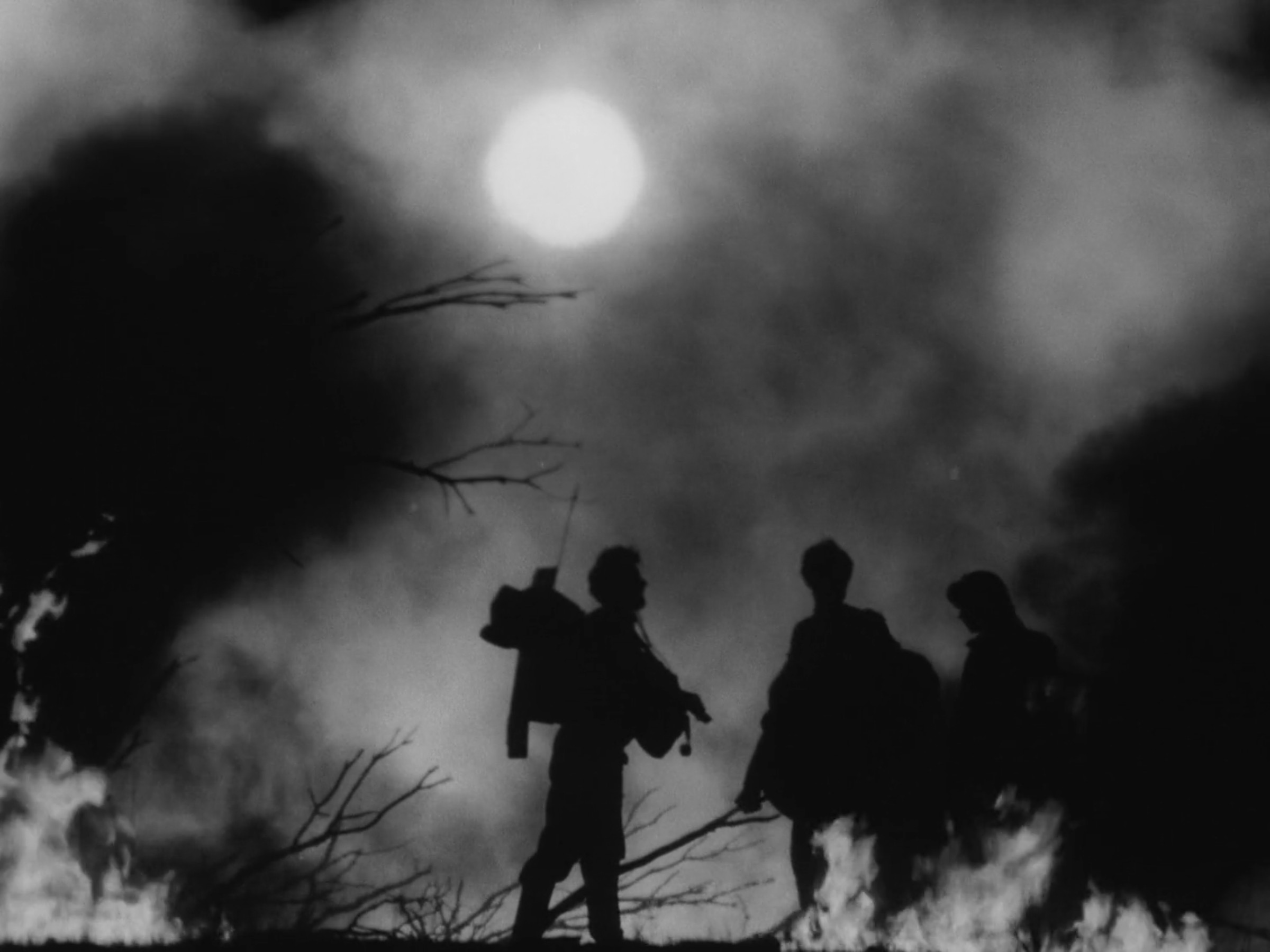
The cleansing rain that falls in the wake of this devastation helps to douse the remaining embers and quench the adventurers’ thirst, though it is little more than temporary relief as they trudge through the spindly, black trees of the forest’s ashy remains. Weakened to the point of total exhaustion, Andrei’s dazed expression floats by in close-up as he is carried on a makeshift gurney, and we too take his immediate point-of-view as he gazes up at the trees in a trance. Realising the burden that he is inflicting on his companions, he decides to disappear into the misty swamp one night and, much to Tanya’s horror, becomes the second to perish.
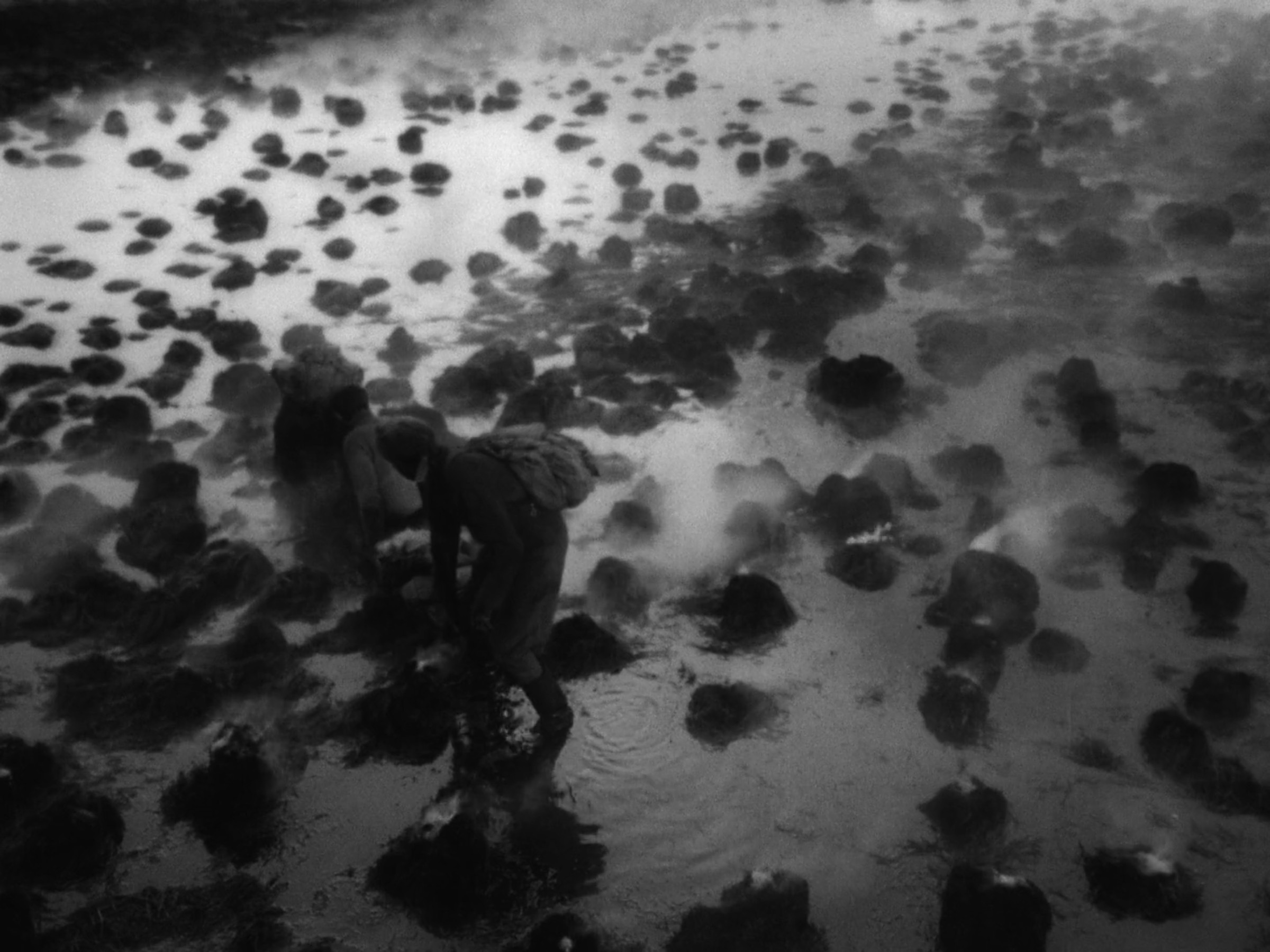
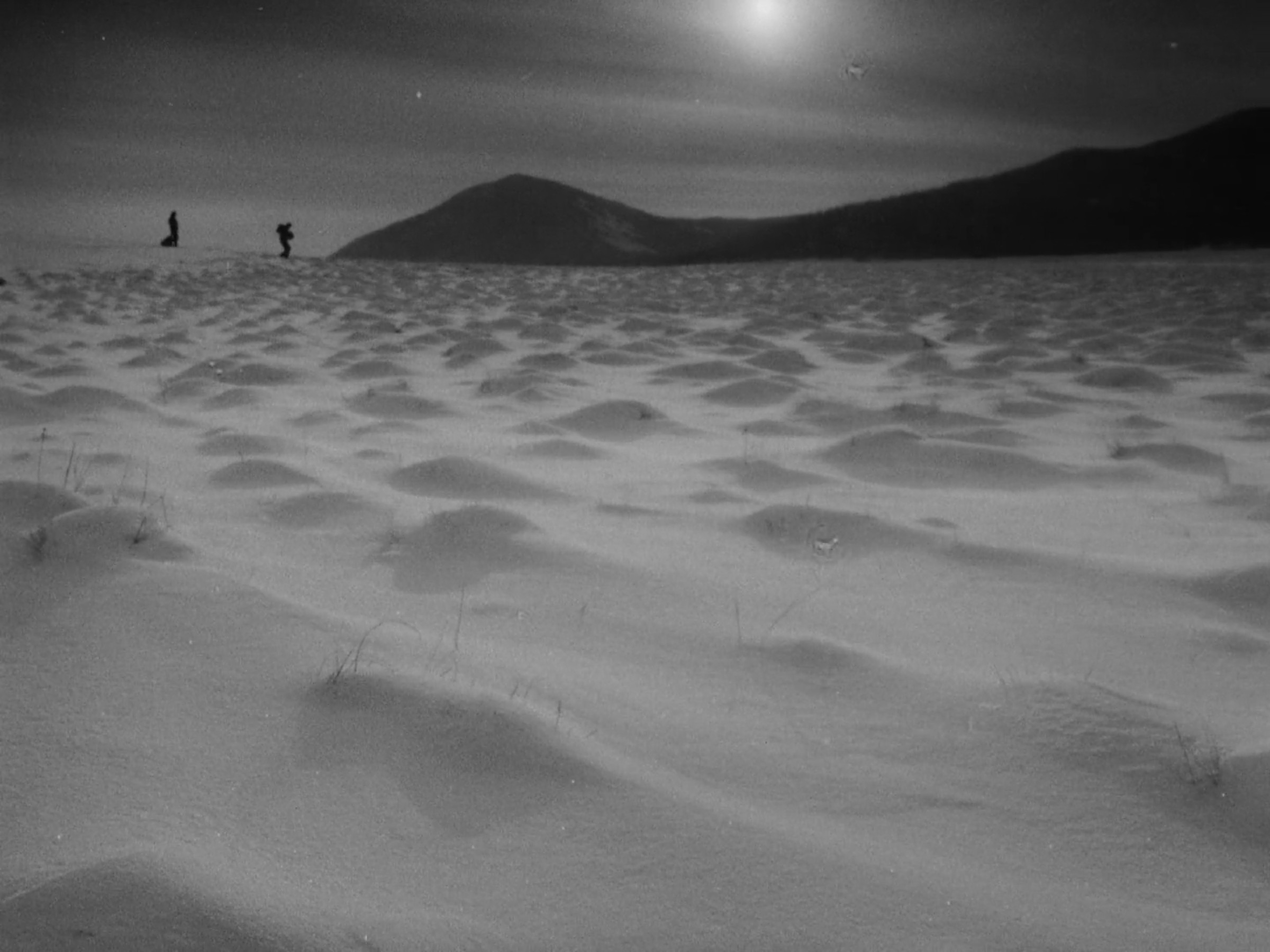
As the party’s numbers dwindle throughout Letter Never Sent, Kalatozov reveals a robust formal structure, not so concerned with narrative convention than his characters’ psychological disintegration. That each should meet their end in a totally different environment only further reveals the vast scope of the peril which encompasses them, particularly when winter falls and Tanya succumbs to the cold. As Konstantin carries her through the snow, Kalatozov recalls Andrei’s floating close-ups and point-of-view shots, though this time taking her perspective with a blurred lens that fades into a deep, empty darkness.
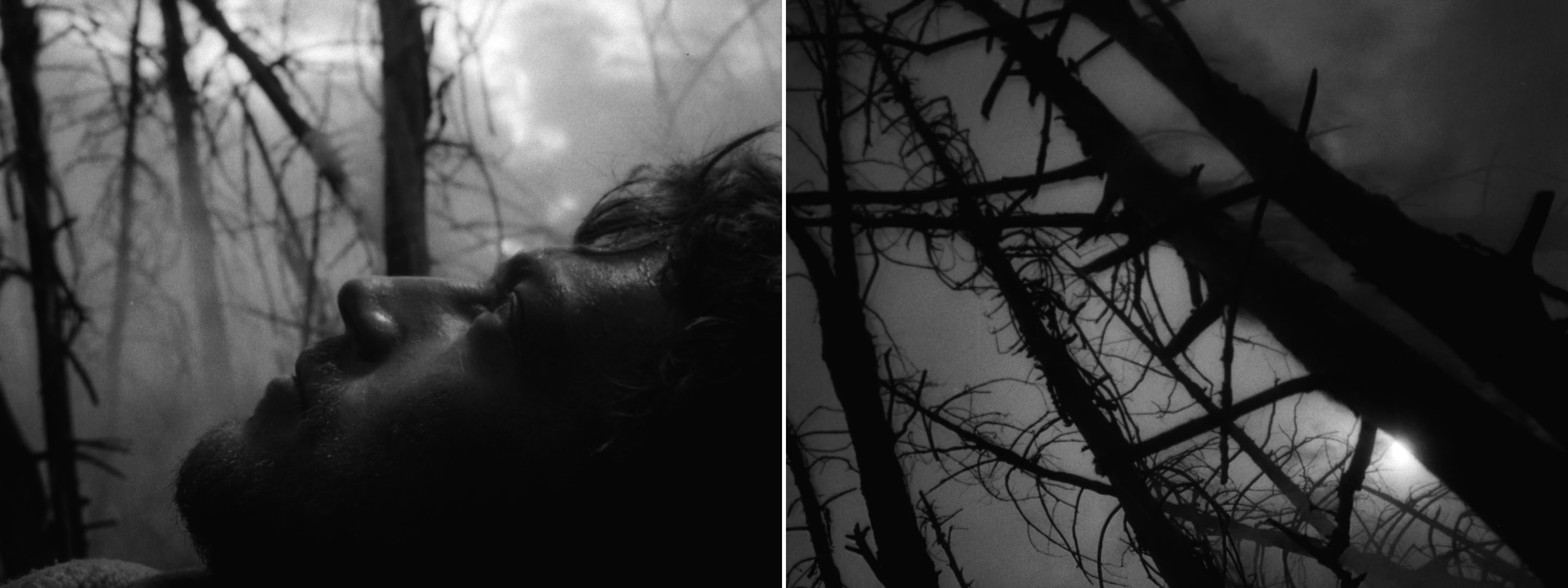
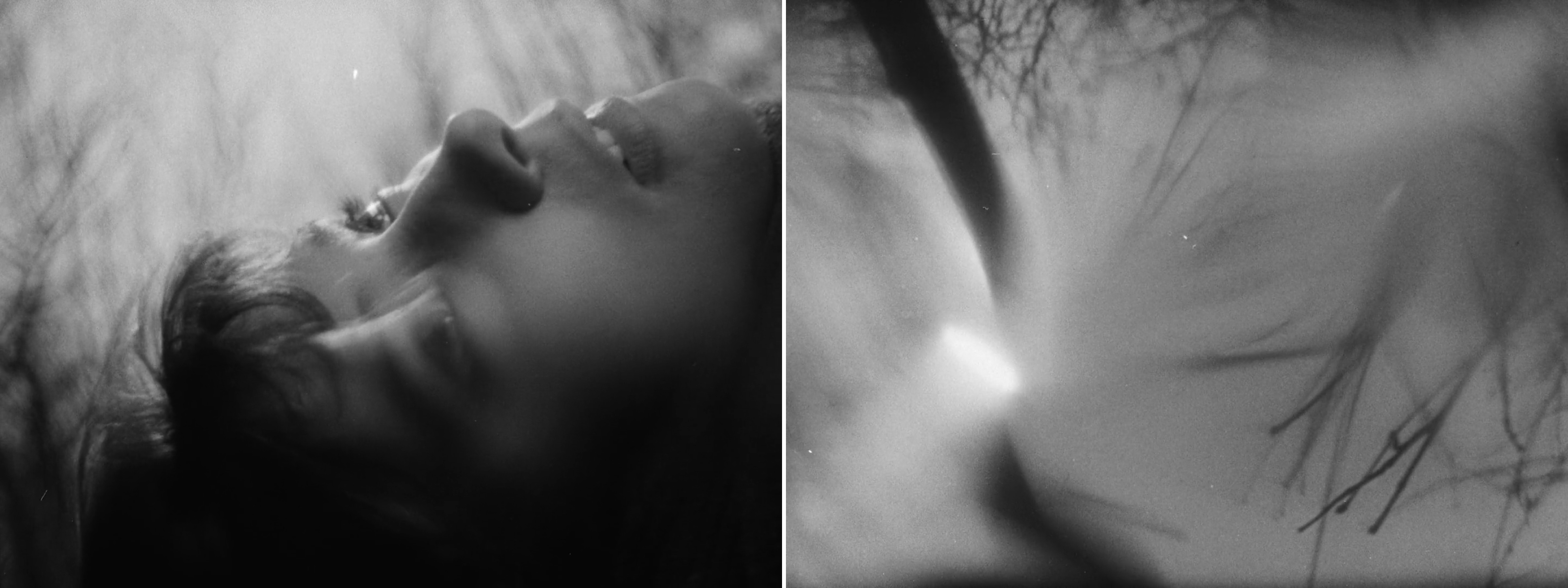
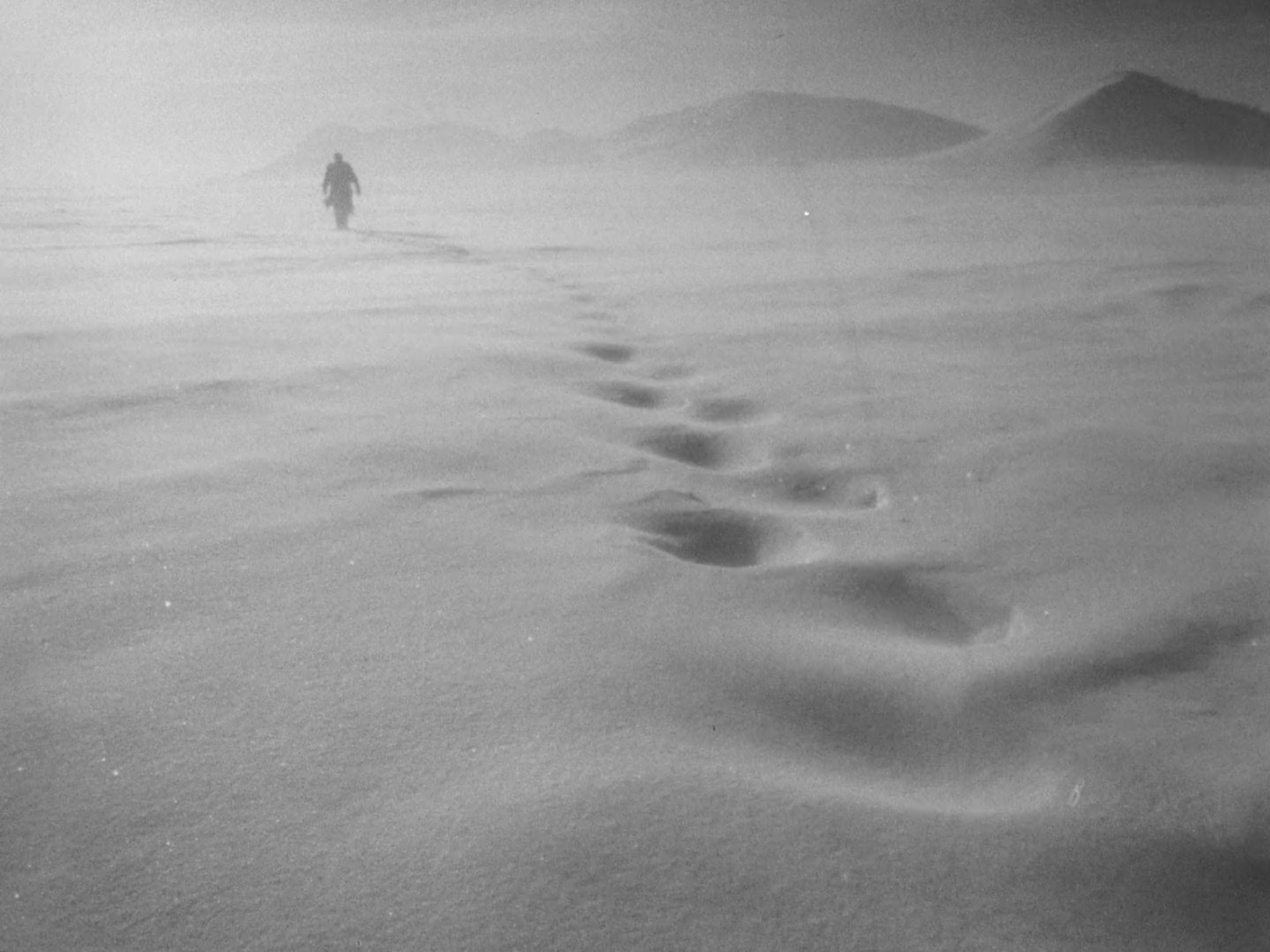
By the time Konstantin is left as the party’s sole survivor, the score has settled into a sparse, lonely quiver of strings, accompanied by that constant voiceover. Unlike his companions, he was never motivated by the promise of riches – he has something far more valuable waiting for him back home, driving him to persevere against all odds.
“Vera! My darling Vera! My life doesn’t belong to me. I must deliver the map to people. I can’t die. I can’t. I must live. Too much has been lost. Too much has been found.”
Floating on a makeshift raft down an icy river, hallucinations of industrial ports, cranes, and boats entice Konstantin in haunting long dissolves, while a warm vision of Vera gently calls him back to the harsh reality he must face to survive. This is just as much a psychological struggle as it is a physical one, and only those who are prepared to fight both battles may live long enough to find salvation on the other end.
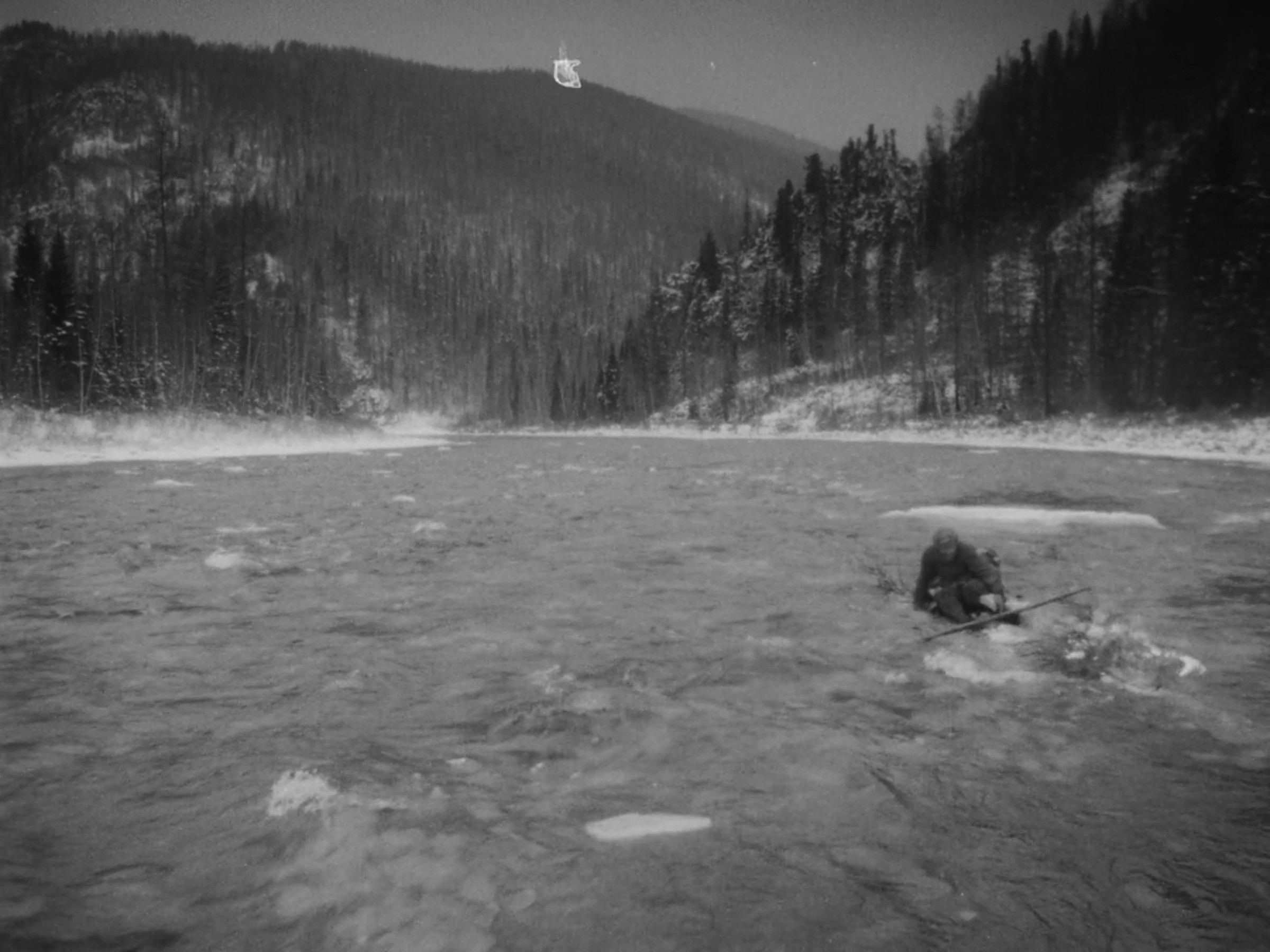
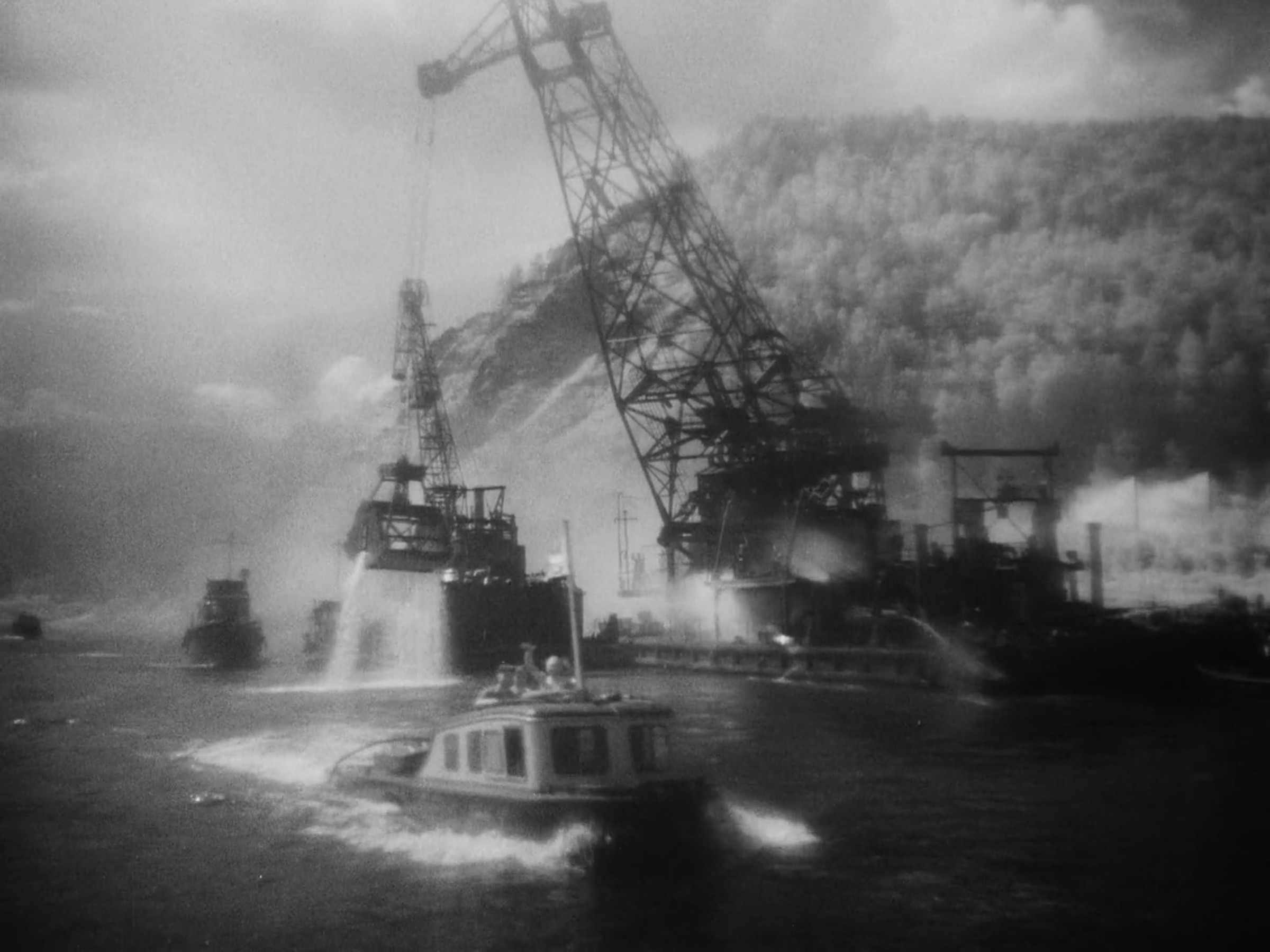
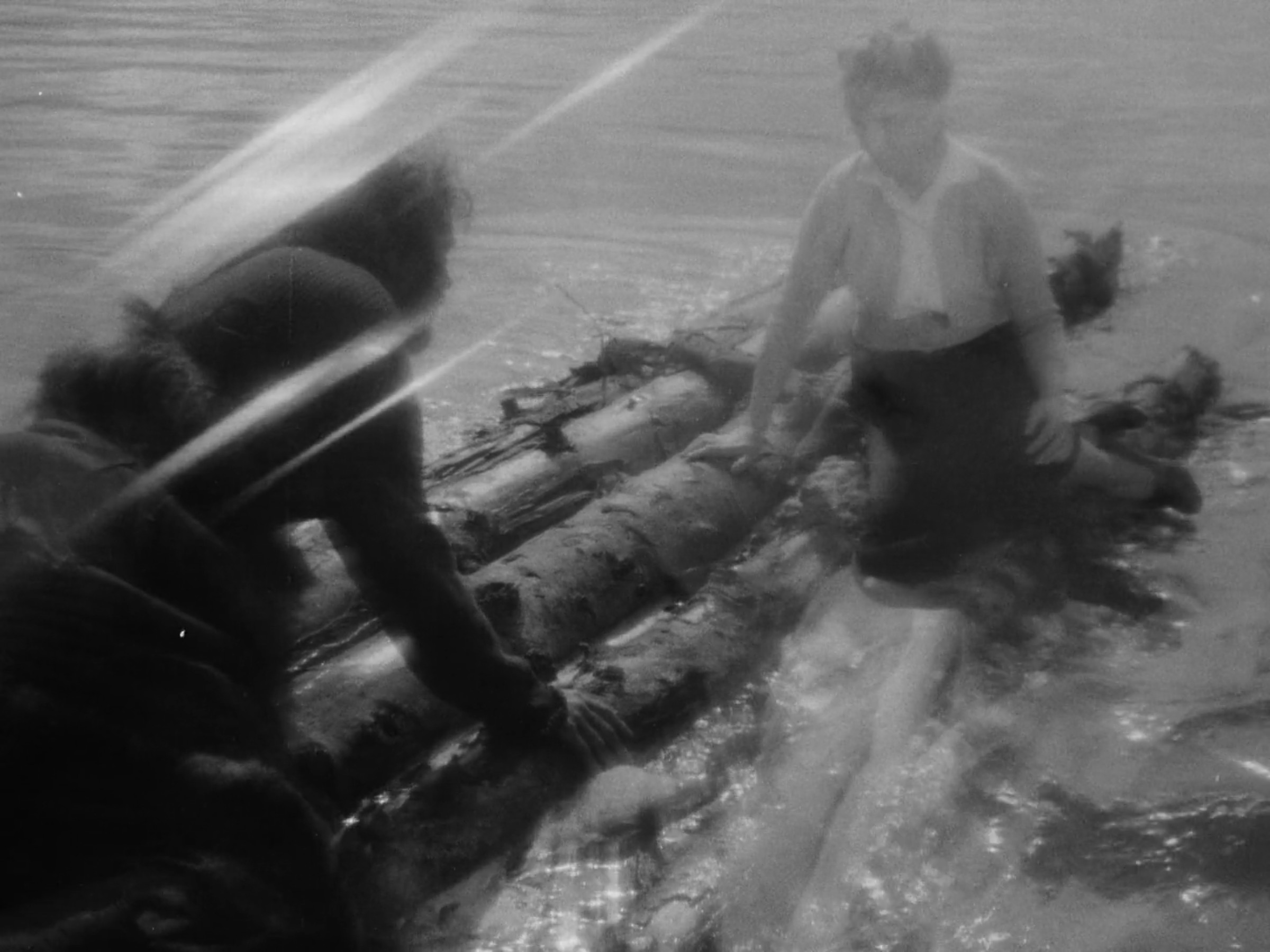
For Konstantin, it takes reaching the brink of death for that lifeline to finally arrive, and the deep focus image of a rescue worker descending from a helicopter above his unconscious face in the foreground is all the sweeter for it. Suddenly, our weary explorer’s eyes flutter open, and Kalatozov ends his film the way it began. Flying through the air in a reverse tracking shot, all we can do is admire the terrible beauty of this desolate, untamed land, and the chilling insignificance of those who dare to challenge it.
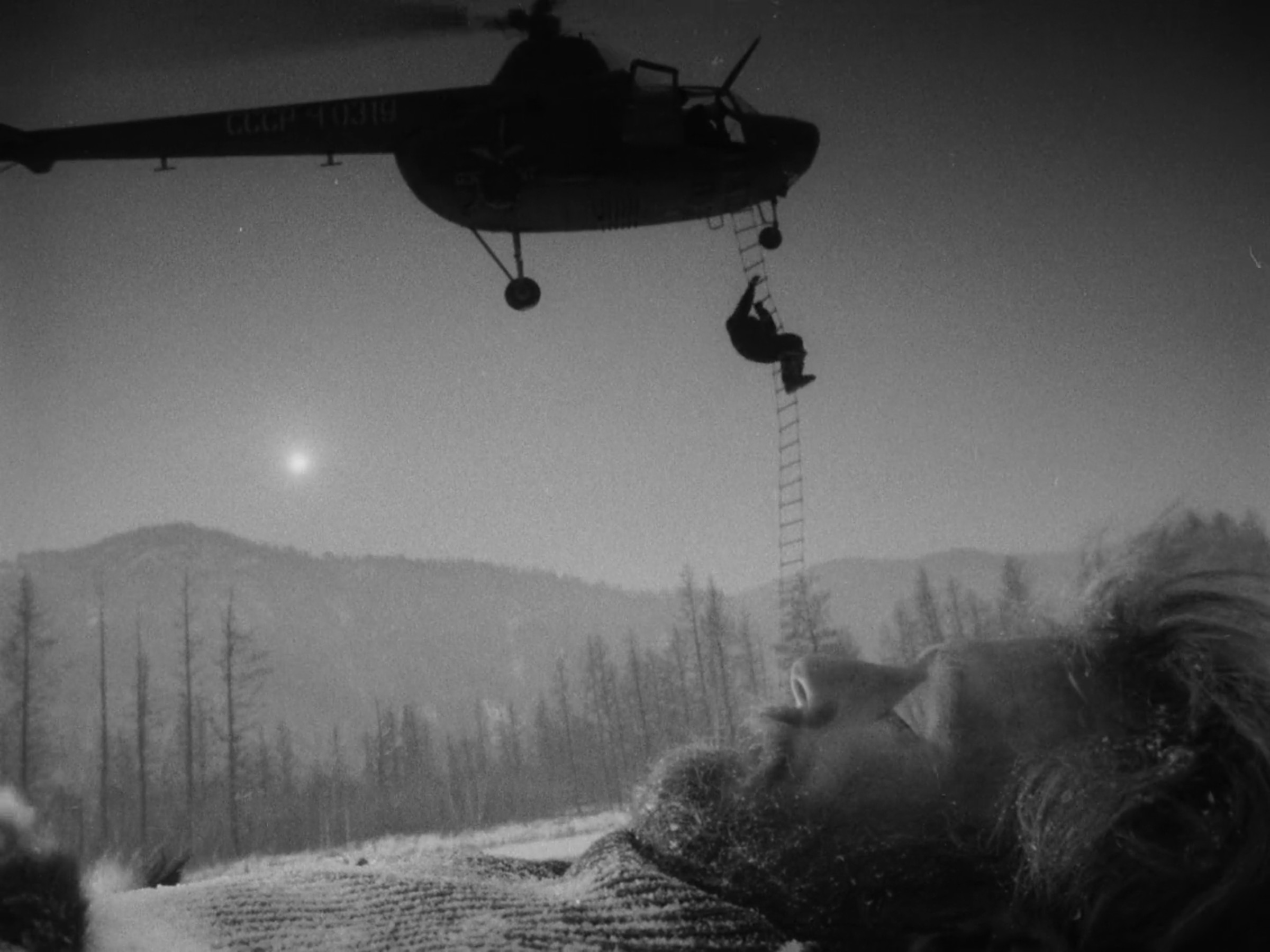
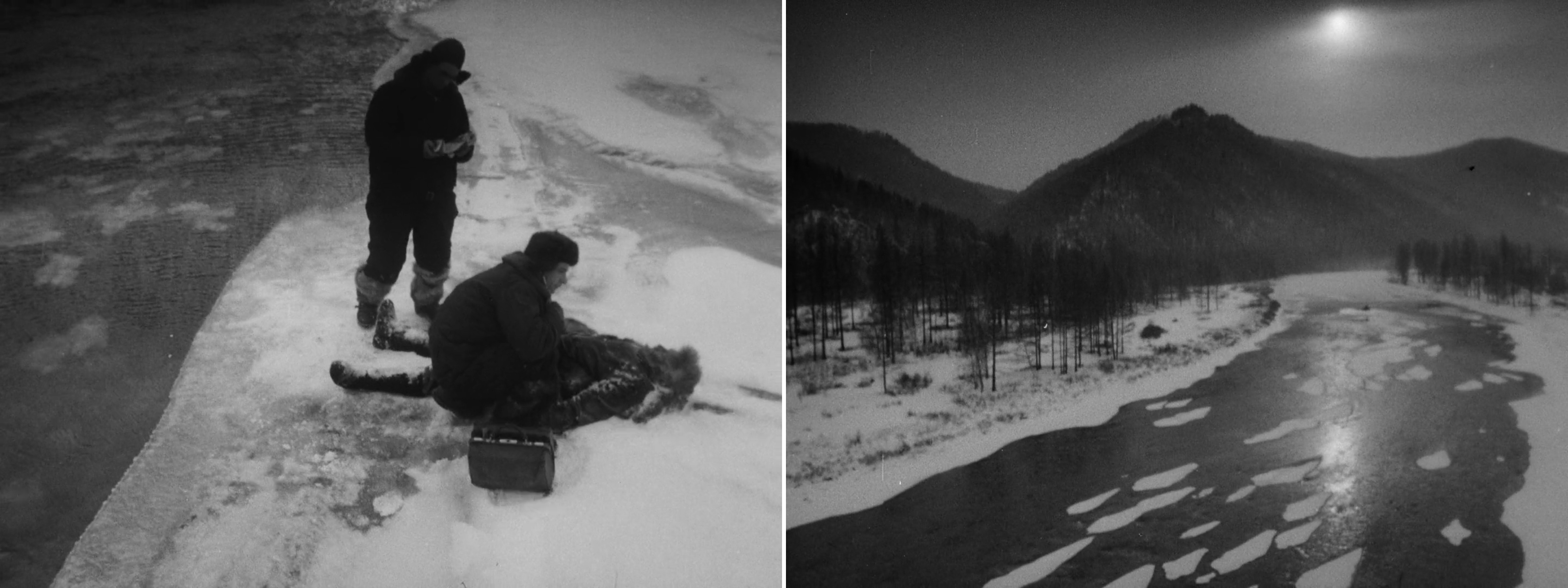
Letter Never Sent is currently streaming on The Criterion Channel.

